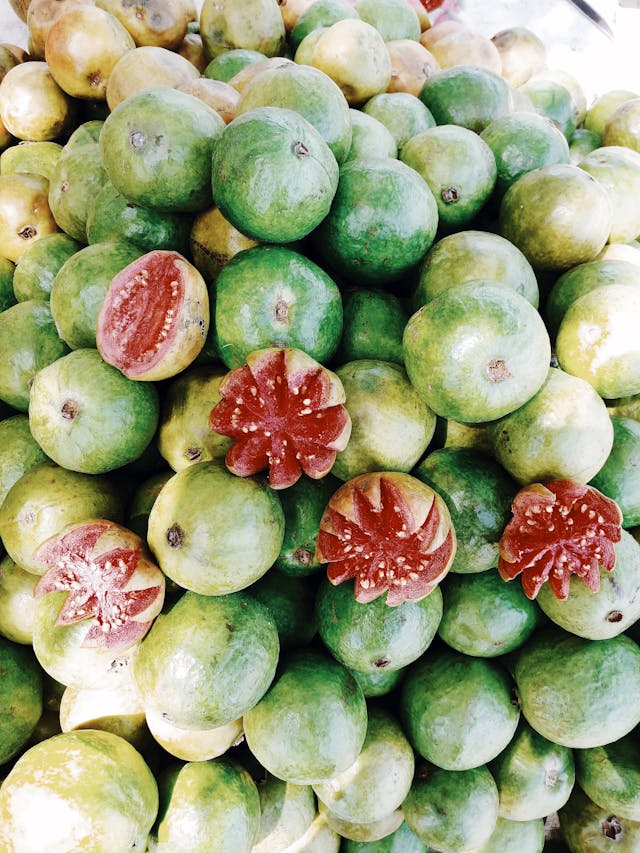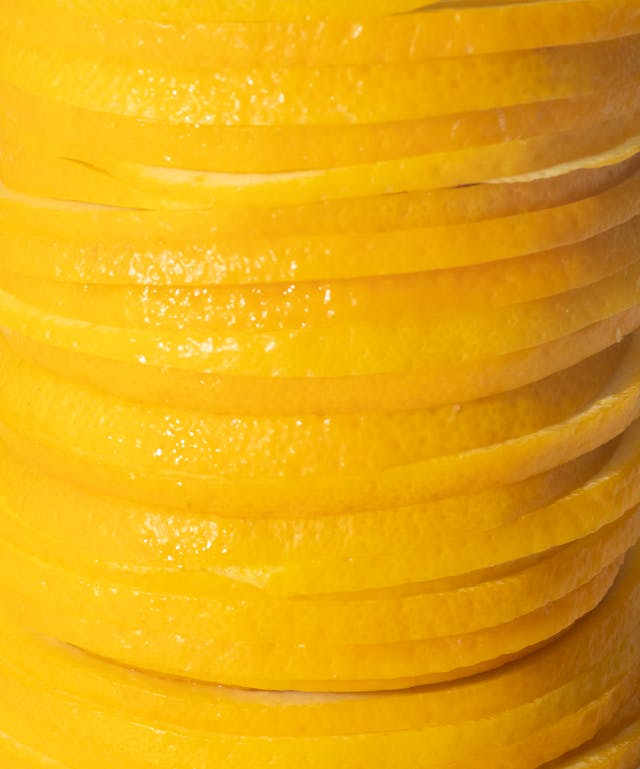Seen some exotic fruits and wondered if it’s safe to give to your baby? These tropical treats are delicious and more than safe to serve your baby. Now, there is much more to introducing foods than you think…
In this article, we will discuss exotic fruits, recipes and caution about exotic fruits when introducing them to your baby. Let’s start!
Table of Contents
What Are Exotic Fruits?
Exotic fruits are tropical fruits that are not yet commonly found in global markets but have the potential to be so, given their appearance, taste, and textural and nutritional quality parameters.
Definition and Examples
Exotic fruits are a captivating category from different regions worldwide, often characterized by their unique flavours, vibrant colours, and distinctive appearances. These fruits are not usually found in local grocery stores and may require some exploration. With their exciting taste and textures, exotic fruits offer a delightful taste from the familiar that invites us to indulge in the excitement of new tastes.
Here are some examples of exotic fruits you can look out for:

- Jackfruit
- Mangosteen
- Durian
- Horned melon
- Lychee
- Passion fruit
- Guava
- Kumquat
- Papaya
- Custard apple and
- Starfruit
Nutritional Benefits
Exotic fruits like coconut water, acerola, acai, guava, dragon fruit, and passion fruit contain minerals, vitamins, and antioxidants that support your overall health and wellness. When paired with other fruits, endless flavour combinations can be made.
Introducing Exotic Fruits to Your Baby
When to Start
As for our little ones, exotic fruits can be given to babies from the beginning of food change, between 4 and 6 months (according to the latest recommendations).
Preparing Exotic Fruits
Peel your fruit, remove the pulp and chop it into pieces. Add the fruit and puree until the desired consistency is obtained in a tall container or food processor. To thin the fruit puree, use a few tablespoons of coconut water to keep the tropical flavor.
Best Exotic Fruits for Babies

- Pineapple
- Avocado
- Banana
- Passion fruit
- Guava
- Kiwi
- Lychee
- Mango’s
- Coconuts
- Grapefruit
- Papaya
Safe and Delicious Options
Mango:
Moms use a mesh or silicone feeder to transition to fruits like mangos. They can serve it fresh or frozen, putting it into a little feeder to let their baby chew on. Not only does it keep mess to a minimum, but it also helps to introduce your baby to more solid and texture foods safely.
Papaya:
Usually, papaya can be given to children after they have been introduced to more digestible foods (e.g. sweet potatoes, avocados, squash, bananas) and are well allowed. Usually, a paediatrician recommends that papaya should be introduced to babies aged 7-8 months.
Kiwi:
A kiwi should be introduced between the 8th and the 10th month of a baby’s life. If the baby shows sensitivity, such as a diaper rash or tummy ache, try again after a few months. How you introduce new food to your baby will make a difference in how they respond to it. Introduce kiwi when you haven’t introduced a new food in the previous meal. Start with a small amount and see how the baby reacts. When the baby shows signs of liking the taste and texture of a kiwi, add it to their daily diet.
Dragon Fruit:
If you are planning on introducing foods slowly to your baby, you can start anywhere for six months. Begin with a small amount of dragon fruit and see if your baby enjoys the taste. However, you can also mash the dragon fruit and feed it to your baby.
Avocado:
If you want your baby to try avocados, you can start at 6 months. They are rich in healthy fat that provides energy and helps your baby absorb other nutrients. Serve avocados in a puree or cut in strips for baby-led weaning. Try serving them cold out of the refrigerator to ease sore gums if your little one is teething.
Less Common Options
- Durian
- Mangosteen
- Rambutan
- Salak
- Persimmon
- Soursop
- Longan
- Buddha’s hand
- Cherimoya and
- Chayote
The Exotic Fruit Box: A Convenient Choice

What is an Exotic Fruit Box?
An exotic fruit box contains a range of seasonal exotic and exciting fruits available at the time. We target fruits that are in season, rare, colourful, and delicious and are in their prime.
Benefits of Using an Exotic Fruit Box
An exotic fruit box is convenient as it contains various in-season fruits. Exotic fruits are rich in vitamins, micro- and macronutrients, dietary fibre, and antioxidants (which have anti-cancer properties). They also have anti-inflammatory properties, help lower blood pressure, and support the fight against diabetes.
Creative Ways to Serve Exotic Fruits
These exotic fruits are a fun way to introduce yummy goods, as there are creative recipes and odd pairings that just work well together. Let’s take a look at each of these!
Recipes and Serving Ideas
- Papaya flan: Papaya puddings are very healthy and easy to prepare. You can prepare them when you have guests at home because they also have a perfect presence.
- Kumquats upside-down cake: Upside-down cakes help you to use the fruit discretely when baking a cake. The fruit is juicy and caramelized when cooked, secured by the sponge of the cake. Then, when turning them upside down, the fruit shows a brightness that makes them yummy. You can prepare it with many types of fruit, but it is perfect with Kumquats.
- Chocolate avocado cake: Not many can resist a good chocolate cake; this is the best I’ve tasted in a long time. The avocado gives it an incredible creaminess and makes the cake juicy and soft – a delight for the palate.
- Vegan papaya sorbet: Papaya sorbet is perfect in summertime: it’s light and healthy. It contains plenty of antioxidant power and vitamin C with an awesome flavour.
Pairing with Other Foods
Some unexpected combinations bring out each fruit’s flavour once paired. Want to try some?
Here are some wonderful pairings that you should try:
- Banana and mango
- Apple and banana
- Quinoa, banana, apple and date
- Apple and raspberry
- Avocado and banana
Precautions and Considerations

Safety should always be a priority when introducing new foods. This section discusses allergies and what these fruits can do to your digestive health.
Allergies and Reactions
While exotic fruits may be delicious, they might not work so well with your baby. Therefore, it’s crucial to monitor them as you introduce these fruits.
Here are symptoms and reactions that you should watch out for:
- Redness
- Mild swelling of lips, tongue and the inside of the mouth and ears
- Itching and mild swelling of the throat
- Tummy ache
- Vomiting
- Feeling sick
- Runny nose
- Sneezing
Digestive Considerations
Some fruits, including pineapple and fermented foods like kimchi, contain digestive enzymes that benefit your digestion.
List of fruits that contain natural digestive enzymes:
- Pineapple
- Papaya
- Mango
- Kiwifruit
- Bananas
- Avocados
Conclusion
Exotic fruits have incredible benefits, and the good news is that you can give them to your baby. Whether it’s papaya flans or an odd combination, just watch them for any allergies. Babies can have a reaction to these fruits because of some allergies you might not be aware of just yet. Play it safe and monitor them!


